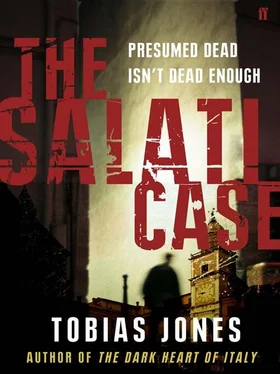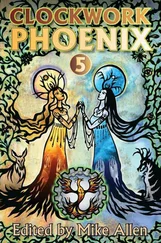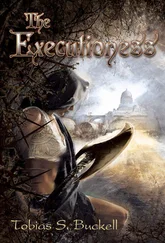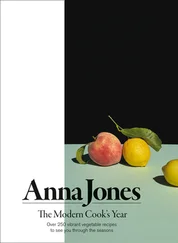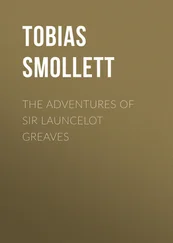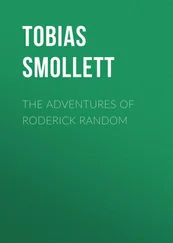‘Didn’t look like you were doing much grieving. And she phoned me. She found my number somewhere and started asking questions. All I did was answer them. Maybe you should try doing the same.’
‘And telling her that her grandmother was dead wasn’t enough. You went and told her that her father might be alive.’
I rubbed my forehead. ‘No, no I didn’t. I said I had no evidence he was dead.’
‘Same thing. You come here out of nowhere and start whispering, bringing back…’
‘What?’
‘Everything.’
‘I’ve brought back nothing so far.’ I wanted to go back to bed but the woman sounded drunk and exhausted and I wanted to hear what she would spill. I untwisted the angular hour-glass of the coffee machine and filled the bottom half with water. I spooned the brown powder into its tray and twisted the two halves back together.
‘You’ve brought back pain and misery is what you’ve done. She’s been up most of the night, screaming at me for being an unnatural mother.’
‘There’s no such thing.’ I listened to the woman stammering. ‘Let me guess, she’s finally asleep and you’re in the kitchen swimming in self-pity and any kind of grappa you can lay your hands on, right?’
‘ ’Fanculo.’ She said it like she couldn’t even summon up the necessary anger.
‘Listen, I’m sorry if I’ve caused you trouble. Like I said, I answered the phone and answered her questions, that’s all.’
She sighed.
‘You don’t get on with your daughter, do you?’
‘No mother gets on with a fifteen-year-old daughter. Especially when people like you come along and start stirring things up.’ There was silence down the line and I said nothing. ‘I love her,’ she started saying, ‘and I get nothing in return. I look after her every minute of my waking life and she acts like I’ve wronged her somehow. Said her father would never have left if I had treated him properly. She wants to prove her independence from me by throwing every insult she knows, but the moment there’s a whisper her father might not be dead, she’s desperate to be a little child again, to be caught up in his arms and thrown in the air.’
I heard the machine roaring the arrival of the coffee. I held the black plastic bud and lifted up the metallic lid. The last of the coffee was spitting up into the upper chamber. I switched off the gas, poured the coffee into a small cup and took it over to the window.
‘You see,’ she was going on, ‘I can give up on Ricky. Truth told, I gave up on him years ago. I gave up on him even before he went missing. I knew he would never be around long enough to be a father and a husband. But she can’t let it go. How can a little girl give up on her father?’
‘There are going to be more surprises for her before this is over.’
‘What’s that supposed to mean?’
‘It means there’s not a lot your little girl can take for granted.’
‘What do you mean?’
‘I need to check a couple of things, but I think she might have something to gain as well as to lose. Listen, I’m in Rimini today, I’ll come round.’
‘I don’t want you going near her.’
‘That hurts.’ I laughed. ‘I’ll see you later.’ I snapped the phone shut.
I pulled up the shutters. Outside the darkness was just beginning to give way to daylight. Through the fog I could just see the street lamps clicking off one by one. There were no cars on the roads and the only noise was the incessant chirping and trilling of birds.
The steam from my coffee created tiny bubbles on the window. I began drawing a stick man. Drips colluded and ran down the pane.
I went to find some clothes. I only get dressed for two reasons: modesty and warmth. I shave my head more often than I shave my chin. I never wear a suit or a tie. I am, by the standards of this chic city, a lost cause, a visual embarrassment to myself. Here if you don’t dress up every day you’re a nobody. If there’s not a certain sheen to your appearance which points you out as a person of importance, people forget you’re there. They assume that either you’ve got no eye or, even worse, no wallet. So they don’t notice you, or, if they do, they underestimate you, which is exactly the way I want it.
I dressed quietly and went out into the cold. I walked aimlessly. I passed a newsagent just opening up. The man was putting out the board with the day’s headlines. TALKS STALLED, it said under the logo of a national newspaper. The latest round of national pay negotiations had hit the buffers and the newspaper would be full of comment about how the country was descending into crisis.
The real news was that nothing was happening. Which was what normally happened in winter. Here, everything is as regular as clockwork: the schoolchildren, the buses, the meetings, the meals. It feels like the most punctual city in Italy. There’s something about the way people walk: they all know where they have to be next. If dinner isn’t served at the expected hour grown men think the end of the world is nigh.
I saw a couple jogging towards the Parco Ducale. Every now and then I heard the judder of a shop’s metallic shutters being raised.
It was almost eight and I headed towards Tonin’s office on one of the side streets off Via Farini. I was half hoping that the girl from last night would be there, but when I rang, the same male voice from yesterday spoke.
‘We’re on the ground floor on the left.’
The door clicked open. I wandered across the cold stone. There, on the left, stood an old man. He looked distinguished. He had a tie and a walking stick and smelt of expensive aftershave.
‘Good morning,’ he said formally. ‘You must be Castagnetti.’
I nodded. ‘You’re Tonin?’
The man held the door open for me. The office was similar to Crespi’s: furnished to feel luxurious. Entire walls were covered with legal reference books. He motioned for me to sit down.
‘You found us all right?’ he asked.
‘I’m here aren’t I?’
‘Could I offer you a coffee?’ There was steel inside his politeness, as if his politeness was nothing more than a warning that he expected deference in return. By being so overtly accommodating, he made it clear that he demanded esteem and subtlety. It was a charade that many powerful men played, a sort of conversation in code.
‘I assume this is about the will?’ he said, as if he were asking after my mother.
It was a strange question to ask. But that’s what lawyers did. They went to the documents and the money.
‘You’re wanting to prove Ricky’s dead?’ Tonin asked again.
I nodded. I would let the man ask his questions, but I didn’t like it.
‘Silvia’s other son,’ the man went on, placing a spoon back on the saucer, ‘what’s he called? Umberto is it? He’ll be wanting to prove Riccardo is dead. It makes sense.’
I looked at him. It wouldn’t be difficult to make the man come clean, but he would need a bit of flushing.
‘Listen,’ I interrupted, ‘I think you’re in trouble either way. You withheld information.’
‘Is that so?’ Tonin said, amused.
‘That would be the charge. A young man goes missing and you forgot to tell the police that he was your son.’
Tonin stared at me with a stony face. ‘How did you find out?’
‘You show up the year Silvia Salati’s husband died in 1995. Ricky’s flush with cash for once and no one knows how. You go round there after he goes missing. You huff and puff the way an anxious father would.’
Tonin had lost his balance. He was trying to regain it by putting his fingertips on the edge of the table but I could see his fingers shaking. He was staring into the drying brown stains on his cup.
‘It’s not something I’ve ever been ashamed of,’ he said quietly. ‘I kept it secret only because Silvia wanted it that way.’
Читать дальше
